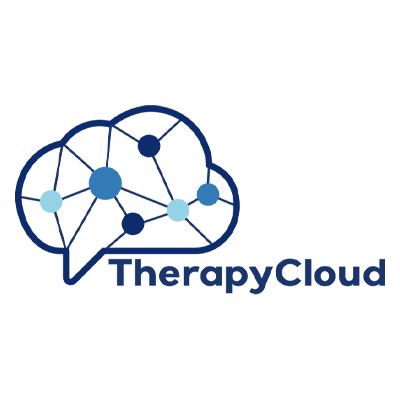.png)
What is Trauma and How Can You Heal? Learn Symptoms & Paths to Healing

Life can sometimes throw curveballs, experiences that shake us to our core and leave lasting impacts. When these experiences overwhelm our ability to cope, they can lead to what we call “trauma.” Trauma know the word "trauma" well and see the weight it carries. Our aim here is to gently unpack what trauma is, how it affects someone, and most importantly, to offer a message of hope and the possibility of healing.
It’s important to understand that trauma isn't just about the event itself, but rather about our individual experience of that event and its lasting effects on our minds, bodies, and spirits. What might be deeply traumatic for one person could not be so for another. We all process and respond to adversity in unique ways.
What Exactly is Trauma?
At its heart, trauma is a deeply distressing or disturbing experience that overwhelms our capacity to cope. This could be a single, acute event like a car accident, a natural disaster, or an assault. Or, it could be ongoing and chronic, such as childhood neglect, domestic violence, or prolonged exposure to stressful environments.
Dr. Gabor Maté, a trauma expert, explains that "Trauma is not what happens to you, it’s what happens inside you as a result of what happens to you. This definition highlights the subjective nature of trauma and the wide-ranging impact it can have.
How Trauma Impacts the Brain and Body: The Science Behind the Experience
Recent research in neuroscience has shed light on the profound ways trauma can alter the structure and function of our brains and bodies. When we experience a traumatic event, our body's natural "fight, flight, or freeze" response kicks in, flooding our system with stress hormones like cortisol and adrenaline.
The Brain's Response:
- Amygdala: This part of the brain acts like our alarm system, constantly scanning for threats. In individuals who have experienced trauma, the amygdala can become hyperactive, leading to increased feelings of fear, anxiety, and hypervigilance, even in safe environments.
- Hippocampus: This area is crucial for memory formation. Trauma can disrupt the hippocampus, making it difficult to process and integrate the traumatic experience into our autobiographical memory. This can result in fragmented memories, flashbacks, and a sense of the past feeling perpetually present.
- Prefrontal Cortex: This is the brain's "executive control center," responsible for reasoning, planning, and emotional regulation. Trauma can impair the function of the prefrontal cortex, making it harder to manage intense emotions, make sound judgments, and feel a sense of control.
The Body's Response:
The effects of trauma aren't just confined to the brain. The prolonged activation of the stress response system can have significant physical consequences, including:
- Chronic Pain: Trauma can lead to changes in the nervous system that increase sensitivity to pain.
- Digestive Issues: The gut-brain connection is strong, and stress and trauma can manifest as irritable bowel syndrome (IBS) or other digestive problems.
- Sleep Disturbances: Hyperarousal and anxiety can make it difficult to fall asleep and stay asleep.
- Weakened Immune System: Chronic stress can suppress the immune system, making individuals more susceptible to illness.
Understanding these biological changes can help us move away from self-blame ("Why can't I just get over this?") and towards a more compassionate understanding of our reactions. Our bodies and brains are responding in ways that were initially designed to protect us. If you are looking for more information on the mind-body connection, Dr. Bessel van der Kolk, a leading researcher on trauma, wrote an entire book on the topic: The Body Keeps the Score.
Common Signs and Symptoms of Trauma
The ways trauma manifests are diverse, but some common signs and symptoms include:
- Intrusive Memories: Flashbacks, nightmares, or unwanted thoughts about the traumatic event.
- Avoidance: Efforts to avoid places, people, or activities that trigger memories of the trauma.
- Negative Alterations in Cognition and Mood: Persistent negative beliefs about oneself, others, or the world; feelings of detachment, shame, guilt, or hopelessness.
- Hyperarousal: Increased irritability, difficulty concentrating, exaggerated startle response, hypervigilance.
- Emotional Dysregulation: Intense and unpredictable mood swings.
- Difficulty with Relationships: Trouble forming or maintaining close connections, feelings of distrust.
- Physical Symptoms: Fatigue, headaches, digestive issues, chronic pain.
It's important to remember that not everyone who experiences a traumatic event will develop Post-Traumatic Stress Disorder (PTSD) or even have persistent symptoms of trauma. Many people show resilience and find ways to cope and heal over time. However, the above symptoms represent part of the clinical criteria for the formal diagnosis of Post-Traumatic Stress Disorder (PTSD), which may apply if these symptoms persist and significantly impact your daily life. If this is the case, seeking professional support is crucial.
Paths to Healing and Growth After Trauma
The good news is that healing from trauma is possible. While the journey looks different for everyone, there are evidence-based therapies and approaches that can help individuals process their experiences, reduce symptoms, and build a life filled with meaning and connection.
Healing Therapeutic Approaches:
- Trauma-Focused Cognitive Behavioral Therapy (TF-CBT): This therapy helps individuals (especially children and adolescents) and their caregivers address the emotional and behavioral difficulties resulting from trauma. It involves psychoeducation, relaxation skills, cognitive processing of traumatic memories, and in-vivo exposure (gradually facing trauma-related reminders).
- Eye Movement Desensitization and Reprocessing (EMDR): EMDR therapy uses bilateral stimulation (such as eye movements) to help process traumatic memories and reduce their emotional intensity. Research has shown it to be highly effective in treating PTSD.
- Somatic Experiencing (SE): This body-centered approach focuses on releasing the physical tension and constricted energy patterns that can result from trauma. It emphasizes interoception (awareness of internal bodily sensations) and helps individuals safely explore and resolve trauma-related physiological responses.
- Dialectical Behavior Therapy (DBT): While not specifically a trauma therapy, DBT skills (mindfulness, distress tolerance, emotion regulation, interpersonal effectiveness) can be incredibly helpful in managing the intense emotions and relationship difficulties that can arise from trauma.
- Acceptance and Commitment Therapy (ACT): ACT focuses on accepting difficult thoughts and feelings while committing to values-driven actions that create a rich and meaningful life. It can help individuals move forward despite the presence of trauma-related experiences.
Healing Beyond Therapy:
In addition to professional support, several self-care strategies can aid in the healing process:
- Building a Strong Support System: Connecting with trusted friends, family, or support groups can provide a sense of belonging and understanding.
- Mindfulness and Meditation: Practices that bring awareness to the present moment can help regulate emotions and reduce anxiety.
- Gentle Exercise: Physical activity can release tension and improve mood.
- Creative Expression: Engaging in art, music, writing, or other creative outlets can provide a way to process emotions and experiences.
- Prioritizing Self-Care: Ensuring adequate sleep, nutrition, and engaging in activities that bring joy and relaxation are essential for overall well-being.
The Importance of Patience and Self-Compassion in Healing:
Healing from trauma is not a linear process. There will be good days and bad days, moments of progress and times when it feels like you're taking steps backward. Be patient with yourself and practice self-compassion. Acknowledge your strength in surviving what you have been through, and recognize that seeking help is a sign of courage, not weakness.
Frequently Asked Questions (FAQ) About Trauma
Q: Is it possible to fully recover from trauma?
A: While the impact of trauma can be long-lasting, significant healing and recovery are absolutely possible. Many individuals find ways to manage their symptoms, build resilience, and live fulfilling lives. "Full recovery" might look different for everyone, but it often involves a reduction in distressing symptoms, an improved sense of self, and the ability to engage in life with greater ease and joy despite any triggers.
Q: How do I know if what I experienced was "traumatic enough"?
A: Trauma is subjective. What feels overwhelming and has lasting negative effects for you is valid. Comparing your experiences to others can be risky. If an event or series of events has significantly impacted your well-being, it's worth exploring, regardless of how it might seem to others.
Q: Can childhood trauma affect me even if I don't remember specific events?
A: Absolutely. Even if explicit memories are not accessible, the impact of early childhood trauma can be stored in the body and manifest as difficulties with emotional regulation, relationship patterns, and overall well-being. Somatic therapies can be particularly helpful in addressing these implicit memories. The good news is that research shows that the actual traumatic experiences or even who the perpetrator of any such traumas was doesn’t actually have to be remembered in order for healing to be possible.
Q: What if I feel like I should be "over it" by now?
A: Healing from trauma takes time and there is no set timeline. Societal pressures or internal expectations can sometimes lead to feelings of shame or frustration about not healing "fast enough." Be kind to yourself and remember that your journey is unique.
Q: Is medication necessary for healing from trauma?
A: Medication can be a helpful tool for managing specific symptoms like anxiety, depression, or sleep disturbances that can accompany trauma. However, it is generally most effective when used in conjunction with therapy that addresses the underlying trauma. The decision to use medication should be made in collaboration with a psychiatrist or medical doctor.
Q: How can I find a therapist who understands and can help me heal trauma?
A: While all therapists should understand the concept of trauma and how to treat it, it doesn’t mean trauma is their specialty or that they are trauma-sensitive. To make it easy on you, you can use our therapist search feature to search specifically for those who specialize in trauma. Above all, make sure that your therapist is trauma-informed. This means being sensitive to not re-traumatizing you by pushing you too far too soon or by doing insensitive things that could be triggers to you (e.g. hugging, racist comments).
Q: How can I support a loved one who has experienced trauma?
A: The most important things you can do are to listen without judgment, validate their feelings, and offer consistent support. Avoid pressuring others to talk about their experiences before they are ready, and respect their boundaries. Encourage them to seek professional help and offer practical assistance in doing so.
Q: Can I develop PTSD even if the traumatic event happened a long time ago?
A: Yes. Sometimes the symptoms of PTSD can emerge or become more pronounced months or even years after the traumatic event. This can happen when someone is triggered by a reminder of the trauma or by other stressful life events that bring to awareness aspects of the trauma. If you are experiencing delayed symptoms, it's important to seek support.
Q: How can I build resilience after trauma?
A: Resilience is the ability to bounce back from adversity. While some people may naturally be more resilient, it is a skill that can be developed over time. Building resilience involves strengthening coping mechanisms, fostering positive self-talk, connecting with supportive people, finding meaning in life, and practicing self-care. Therapy can play a significant role in building resilience after trauma.
A Message of Hope
If you recognize any of the experiences or symptoms discussed in this post, know that you are not alone, and help is available. Reaching out to a therapist trained in trauma-informed care can be a courageous first step towards healing and reclaiming your life. Remember that you are strong, you are capable of growth, and a brighter future is possible. Be gentle with yourself on this journey, and trust in your capacity to heal.
Meta title: “What is Trauma? Learn Symptoms & Paths to Healing”
Meta description: “Learn what trauma is, how it affects individuals, and explore various therapies and self-care strategies for healing. This client guide offers hope and practical information for recovery.”




